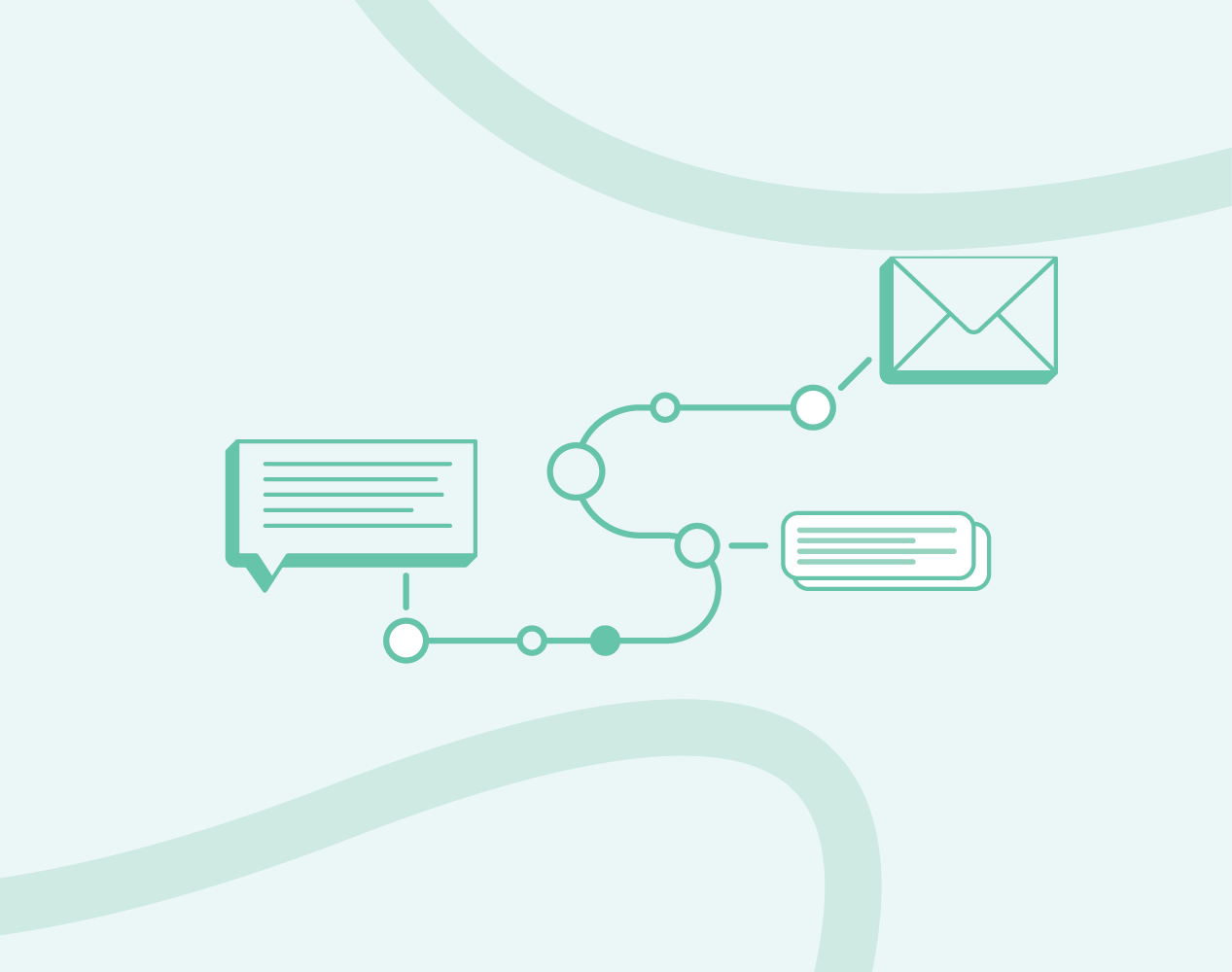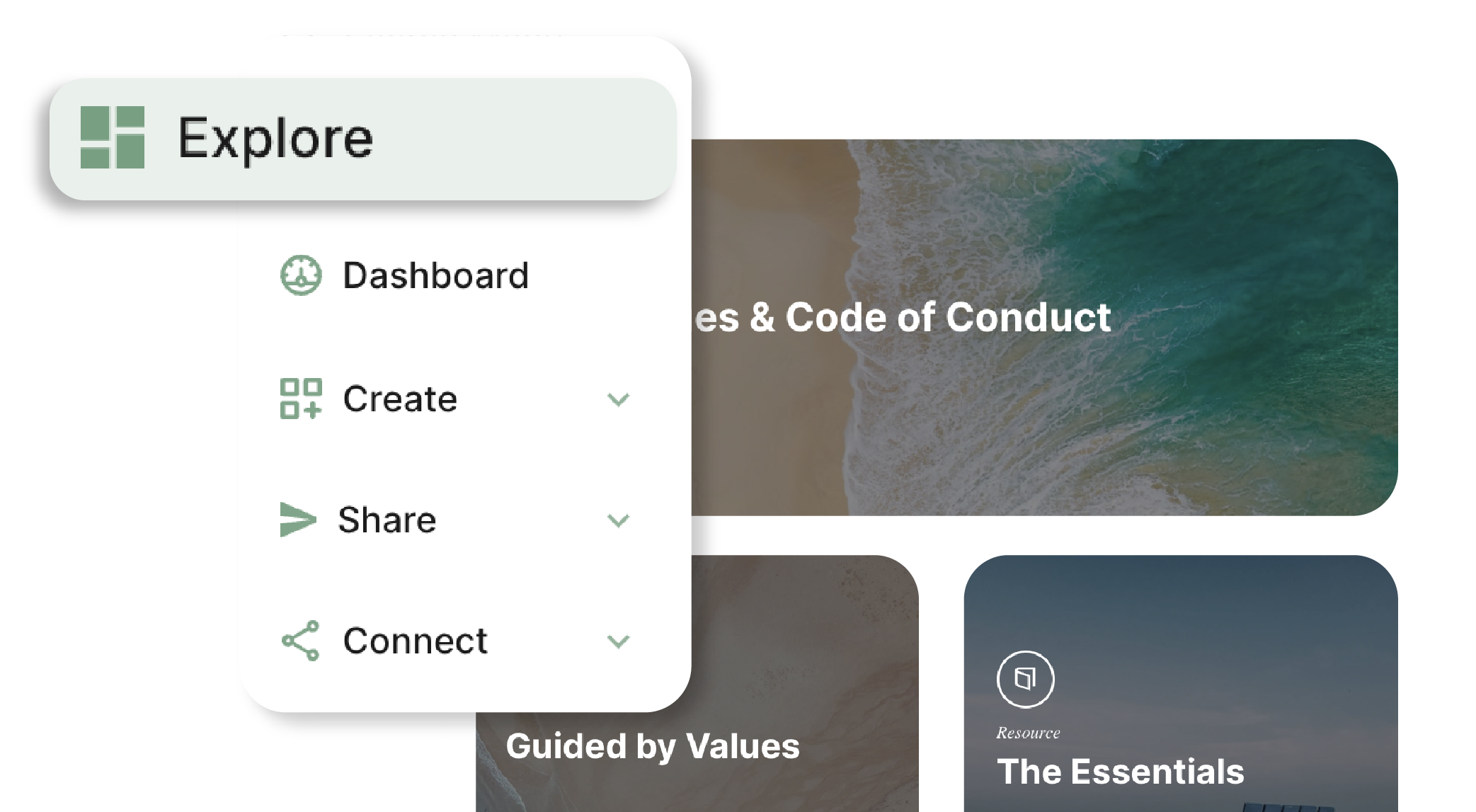Key components of a sales enablement strategy include targeted training, content creation, role-specific coaching, and performance analytics.
Sometimes the B2B sales cycle feels like climbing a mountain. It’s exhausting and potentially discouraging, but closing a deal or reaching the summit is thrilling to accomplish. The process can take months with multiple stakeholders – and plenty of twists along the way.
Impulse-driven strategies that work well in B2C sales can be a lot less effective when executive boards, budget planning, and layers of approval stand in the way of the handshake and signing a contract. That’s why you need to craft a solid sales enablement strategy and provide your sales teams with clarity and focus.
Leading organizations are equipping their sales teams with all of the tools they need for success. Let’s take a look at the methods they’re using to create a powerful sales enablement strategy.
1. Comprehensive onboarding
It may be tempting to skim or skip onboarding, but for sales teams, it is non-negotiable. A thorough and strategic onboarding process shows new hires that their success is important to the business, and that you want to equip them to thrive.
Otherwise, you’re taking a big risk: 47% of sales reps leave their job because of a poor training or onboarding experience. The more comprehensive your onboarding program, the faster your salespeople will be confident and equipped for success.
Onboarding becomes even more effective with automated sequencing through a Learning Management System (LMS). In Continu we call these Journeys. Journeys provide learners (like your sales team) with a visual roadmap for their sequence of training content: like modules, workshops, and assessments. It’s a great way to keep learners engaged throughout the onboarding process. They can see all upcoming training and take ownership of their own progress.
2. Buyer persona profiles and ICPs
Well-developed buyer persona profiles show that you’ve done your homework to target a unique audience with your product or service offering. These detailed personas and ICPs help salespeople to clarify whether leads might be a good fit or not. This research also helps them to tailor the resources and materials they use in outreach and conversations to connect better with specific pain points and build credibility.
3. Effective content management
It’s incredibly frustrating to have to stop and search for a document mid-call with a prospect. Or even worse – when you have to promise to send it later because it’s lost in a folder you can’t find!
Sales enablement content is best shared and organized through a modern learning platform, like Continu. Your sales team needs effective content management so they always have accurate information, easily accessible to share with prospects. A LMS offers a central location to store and organize training materials. It also provides the tools to design new training materials, host workshops or webinars, and assess sales team performance – all within one platform.
Why do sales enablement teams need a LMS?
Sales enablement teams need a LMS to support their ongoing learning and keep them organized in their busy and complex role. A LMS accelerates the training process and allows sales enablement teams to incorporate multiple methods into one platform, including workshops, assessments, coaching, microlearning, training workflows, and more.
LMS features like automated Journeys and key integrations with CRM, calendars, and Zoom help sales teams in several ways. A LMS improves the onboarding process, provides consistent access to valuable resources, and gives valuable time back into sales team schedules.
Ramp Sales Reps Like Never Before
4. Accurate CRM data
Look for a sales enablement tool that integrates with your existing CRM so you are always working off of accurate data. Your CRM shows customers’ intent stage and recent interactions with your organization. When paired with a learning platform, you’ll be able to engage prospects and customers with the right messaging at the right time, which makes all the difference.
Without accurate data and CRM tools to increase efficiency, your salespeople will be stuck spending most of their time on data maintenance. That leaves little time for the more strategic approach of a sales enablement strategy. Join the two together and your sales team will be supported from all sides to focus on prospect relationships.
Continu reading: Sales Enablement vs Sales Operations
5. Communication resources
Sales teams have busy calendars and every minute counts. Cohesive communication resources are essential components of sales enablement. There’s no need for your team to sit in front of a blank email fighting writer’s block. Make it a top priority for marketing to provide a carefully crafted set of sales communications materials. This keeps messaging consistent and saves a significant amount of time for your sales team.
Consider including communication resources into your sales enablement strategy:
- Email templates – to personalize and send with ease
- Sales scripts – for a boost of confidence and to keep the focus on key messages
- Suggested communication cadence – to help keep conversations flowing and avoid overwhelming prospects
- Case studies – for powerful social proof
- ROI calculator – to provide solid numbers when prospects ask
- Battlecards – to sharpen talking points against top competitors
- Slide decks – to share the most accurate and beautifully branded information
- Comprehensive pricing info – for confident and accurate discussions
- Discovery call checklists – to capture a well-rounded picture of prospects’ intent stage
6. Role playing
B2B sales is not for the faint of heart! Prospects are not an easy sell, and they can easily sniff out salespeople who are unsure of basic features, pricing, or use cases. A powerful sales enablement strategy uses role playing to prepare the sales team for these important conversations.
Role playing through different scenarios and common objections is a great way to sharpen skills and boost creativity. Who knows – even the opportunity to listen to other team members’ pitches and responses could spark a new idea or improve how another rep would approach a tricky question.
Role playing and coaching don’t need to be blocked out as full-day, in-person training when you use a LMS for sales enablement. You can offer shorter, ongoing opportunities to roleplay by running workshops – the LMS can automatically invite and remind your reps to join. Then it becomes a regular rhythm in your sales enablement strategy.
7. Workshops and seminars
There will be times when your team needs a little more than short role playing. Work occasional workshops or seminars into your sales enablement strategy. Use feedback from the team to identify top challenges or questions and schedule a workshop on that specific topic. For example, your salespeople might be struggling to stay on top of what competitors are releasing or how they are innovating. Plan a co-hosted workshop with marketing to give specific updates or new battlecards.
Workshops can be effortlessly scheduled, and assigned in Continu. You can easily add or invite learners, track attendance, and share supporting resources. Plus, workshop recordings can be saved for the sales team to revisit whenever they want, and new features in Continu make it easy to search for workshops by date, topic, keywords, and more.
8. Coaching and assessments
Regular assessments will help your sales team to keep their product and brand knowledge fresh and accurate. After completing a training module, salespeople can take a quick quiz or complete a follow-up assessment to gauge comprehension. A LMS allows managers to create these assessments with ease and track learner success over time with powerful reporting tools.
Video coaching is a unique tool to add to your sales enablement strategy. Within a LMS platform your sales reps can record pitches and submit them for feedback and coaching they can take right into their next call.
9. Analyze performance and set new goals
Is your sales enablement strategy actually enabling success? Top teams track these performance metrics to find out:
- Average sales onboarding time – from start date to first sale or to hitting their first target
- Training knowledge retention rates – how well are reps holding onto training info?
- Most-used and least-used marketing content – they can feed these insights back to marketing to help shape the sales enablement content moving forward
- Lead conversion rate – the bottom line KPI
A powerful sales enablement strategy is shaped by these insights for maximum effectiveness.
10. Support continuous learning
When markets shift, your product or service offering evolves, or a new opportunity arises, it’s time for more sales enablement training. You guessed it – that makes it an almost-continuous process!
Frequent training sessions will help your teams to stay current and engaged with sales techniques and strategies, and boost their confidence. But to reduce the time you spend managing workshops and offering refresher training, a LMS provides the ideal platform for continuous learning.
When all your sales enablement content is organized in a LMS, your salespeople can log-in at any time to refresh their knowledge on a certain product or talking point. Bite-sized, targeted training content is easier to digest, and not as frustrating as skimming through an entire course to find a single answer.
Which methods will fuel your success?
Take inspiration from this list of essential components for sales enablement.
- Which ones have you seen success with already?
- Which method(s) will you be adding into the mix to help your salespeople?
- Do you have the right tools in place to help?
Sales team success depends on a well-rounded sales enablement strategy. The right sales enablement tools will support you to build or improve a cohesive and powerful strategy. Your sales team will be thanking you, leads will convert into loyal customers, and your organization will be stronger than ever.












